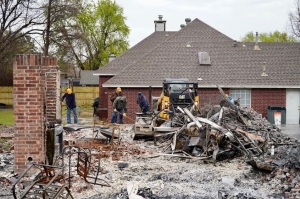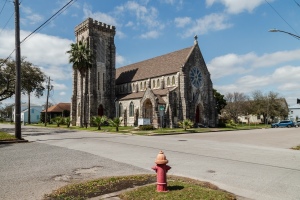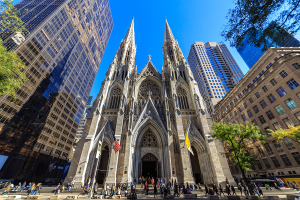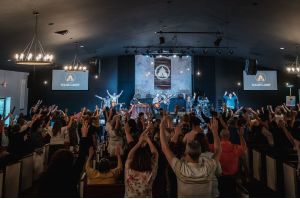Study: World War II Veterans With Bad Experiences Attended Church More
A soon-to-be published study on World War II veterans found that those who had bad experiences of combat were more likely to pray and then attend church after the conflict.
Scheduled to appear online next week in the Journal of Health and Religion, the study was conducted by brothers Craig Wansink, professor of religious studies at Virginia Wesleyan College, and Brian Wansink, professor of consumer behavior at Cornell University.
Titled "Are There Atheists in Foxholes? Combat Intensity and Religious Behavior," the study found that as combat became more frightening, the number of soldiers who reported praying during those times increased from 42 percent to 72 percent.
Furthermore, veterans who reported their war experience as negative were 21 percent more likely to attend church afterwards, whereas soldiers who said positive were 26 percent less likely to attend church.
In an interview with The Christian Post, Craig Wansink explained that he was surprised at how during times of intense combat prayer apparently often took precedence for most soldiers over other loyalties.
"What surprised me about that data was that in heavy combat not only is there greater trust in power beyond this – or the soldiers' immediate – world, but also there is less trust in personal and nationalistic ideals," said Wansink.
"During war, soldiers may be motivated by appreciation of freedom, by hatred of enemies, or by the desire to go home, but during times of heavy combat, those factors decrease in significance and soldiers increasingly turn to prayer."
For their data, the Wansink brothers relied on survey data gathered by the Research Branch of the U.S. Army's Information and Education Division in 1949.
Those surveyed in the archived data were American army infantrymen who served in the Pacific Theatre from March to April 1944.
"We were interested in how people responded to heavy combat. In the face of heavy combat during WWII, an individual soldier likely prayed by himself (not in any organized way with others)," said Wansink.
"However, that emphasis on prayer, and the shared negative experience with others, ends up resulting in soldiers having increased church membership and attendance, particularly if they saw their military experience in negative terms."
News of the study comes as the United States will be observing Memorial Day next Monday. It is a time known for both its leisurely three-day weekend as well as its solemn remembrances of the fallen by veterans, their families, and the nation at large.
Joe Davis, public affairs director for the Veterans of Foreign Wars, told The Christian Post that he felt the study by the Wansink brothers was valid.
"I am not a statistician, but the results of the study are entirely believable, based on my 24 years in the Air Force, and as a veteran of the first Gulf War, and of humanitarian missions in Somalia, Rwanda, and with the Joint POW/MIA Accounting Command," said Davis.
When asked by CP if he believed similar trends existed for veterans of more recent American wars, Davis responded that this was likely true, "but probably more so in the past, because of our nation's stronger ties to religion."
Craig Wansink also commented, "The hell of intense battle affects different people in different ways. I don't think it would be surprising to find veterans of more recent wars responding in the same way."
"Future studies naturally would focus on how veterans find meaningful community (or support groups) and how a belief in a higher power may shape those relations."





























